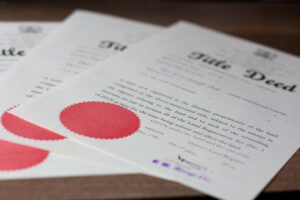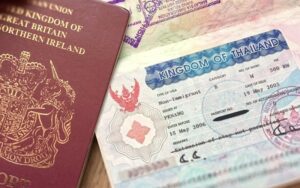A Power of Attorney (POA) is a legal document that grants one person, known as the agent or attorney-in-fact, the authority to act on behalf of another person, referred to as the principal. In Thailand, the use of POAs is common in both personal and business matters, allowing individuals or companies to delegate authority for legal, financial, or administrative purposes. Understanding the importance of Power of Attorney in Thailand is essential, as it facilitates smooth transactions, ensures legal compliance, and protects the interests of both the principal and the agent.
Legal Framework for Power of Attorney in Thailand
In Thailand, the Power of Attorney is governed primarily by the Civil and Commercial Code (CCC), particularly under Sections 867 to 894. The law distinguishes between general powers of attorney, which grant broad authority, and special powers of attorney, which limit authority to specific acts or transactions.
A properly executed POA in Thailand must meet the following requirements:
-
The principal must have legal capacity to grant authority.
-
The document must clearly outline the powers conferred on the agent.
-
The POA should be signed in the presence of witnesses and, in many cases, notarized for additional legal certainty.
Certain transactions, such as property transfers, company registration, or court representation, require a notarized POA to ensure validity and enforceability.
Facilitates Convenience and Efficiency
One of the most significant benefits of a POA in Thailand is that it allows the principal to delegate responsibilities, especially when they are unable to be physically present. This is particularly important for:
-
Business executives managing multiple locations or international operations.
-
Individuals living abroad who need someone to act on their behalf in Thailand.
-
Elderly or disabled persons who cannot personally attend legal, banking, or property transactions.
By granting a POA, principals can ensure that their affairs are handled efficiently, saving time, reducing delays, and allowing decisions to be executed without requiring their constant presence.
Legal Recognition and Enforcement
A Power of Attorney in Thailand is a legally recognized instrument that allows agents to act on behalf of principals with binding authority. Courts, government offices, banks, and other institutions recognize notarized POAs as legitimate authorization to perform specified acts.
Legal recognition ensures that:
-
Contracts signed by the agent on behalf of the principal are enforceable.
-
Financial transactions conducted under a valid POA are legally valid.
-
Administrative processes, such as property registration or visa applications, proceed smoothly.
Without a POA, principals may be unable to delegate authority, leading to potential delays or legal complications.
Critical Role in Property Transactions
Property transactions in Thailand often require a POA, particularly when one party cannot attend the transaction personally. POAs are used in cases such as:
-
Buying or selling real estate.
-
Transferring land or property ownership.
-
Signing lease agreements or mortgages.
Using a POA ensures that property dealings comply with the Land Code of Thailand, protects the parties from disputes, and provides legal certainty that the transaction is valid and binding.
Importance in Corporate and Business Matters
For companies operating in Thailand, POAs are invaluable for delegating authority to representatives or managers. They are frequently used in:
-
Company registration or amendment of corporate documents.
-
Opening bank accounts and managing corporate finances.
-
Signing contracts, agreements, or licensing documents.
By granting a POA, businesses can operate efficiently, allowing managers or legal representatives to perform essential tasks without requiring the continuous presence of directors or shareholders. This is especially important for foreign investors or multinational corporations operating in Thailand.
Powers and Limitations
A POA can be tailored to suit the principal’s needs. General POAs provide broad authority, while special or limited POAs specify the acts the agent may perform. Clearly defining the powers and limitations protects both the principal and the agent by preventing misuse or misunderstanding.
For example, a limited POA may authorize the agent to:
-
Sell a specific property.
-
Collect debts or payments.
-
Represent the principal in a single legal case.
Properly drafted limitations ensure that the agent acts only within the scope of authority granted, reducing the risk of disputes or unauthorized actions.
Protection Against Misuse and Fraud
While POAs provide significant convenience, they also carry a potential risk of misuse if improperly granted. The importance of careful drafting, notarization, and choosing a trustworthy agent cannot be overstated. A POA that is notarized and clear in scope protects:
-
The principal from unauthorized decisions or transactions.
-
Third parties dealing with the agent, providing confidence in the agent’s authority.
-
Legal certainty in both civil and commercial matters.
Thai law allows the principal to revoke a POA at any time, provided they notify the agent and relevant authorities, thereby minimizing potential risks.
Cross-Border and International Significance
POAs are particularly important for foreign nationals or investors in Thailand. Many international transactions, including property purchases, banking, or corporate operations, require a notarized POA. In cross-border situations, POAs may also need legalization or an apostille for recognition in foreign jurisdictions.
By using a POA, foreign principals can efficiently conduct legal and business matters in Thailand without being physically present, enhancing convenience and compliance.
Role in Legal Proceedings
POAs are essential in legal proceedings, allowing an agent or lawyer to represent the principal in court. This is particularly useful in civil, commercial, or administrative cases where the principal cannot attend hearings.
The POA allows the agent to:
-
Submit legal documents and pleadings.
-
Attend hearings and represent the principal’s interests.
-
Negotiate settlements or agreements.
Proper legal representation through a POA ensures that the principal’s rights are fully protected in accordance with Thai law.
Flexibility and Adaptability
A Power of Attorney in Thailand is highly flexible and can be adapted to suit the needs of both individuals and businesses. It can be:
-
Revocable or irrevocable: allowing the principal to maintain control.
-
Limited to specific acts: to provide precise authority.
-
Enduring or time-bound: ensuring it remains valid until completion of tasks or a fixed period.
This adaptability makes POAs an indispensable tool in managing personal, financial, and business affairs efficiently.
Conclusion
The Power of Attorney in Thailand is a vital legal instrument that facilitates convenience, efficiency, and legal certainty. It allows individuals and businesses to delegate authority safely and effectively, ensuring that legal, financial, and administrative matters are handled properly, even in the principal’s absence. Whether for property transactions, corporate operations, legal representation, or cross-border affairs, a properly executed POA protects the rights of both the principal and third parties, minimizes disputes, and enhances operational efficiency.






















